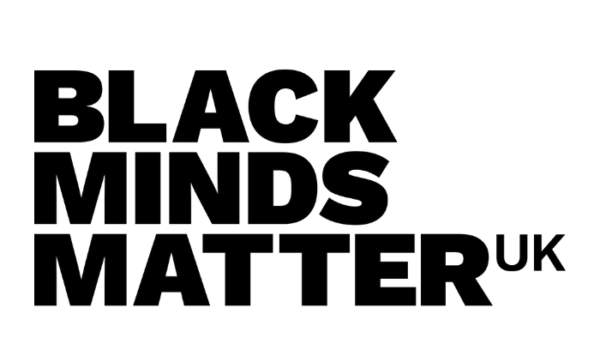First, a disclaimer – honestly I feel like a woman should be writing this blog but I feel strongly about it and I feel like I have something to say, so here goes…
I can’t remember a time in my lifetime where the momentum to achieve gender parity – to close the gap between men and women as regards opportunity and pay – has been greater. But we all know how quickly an issue can move out of the spotlight as the ‘next big thing’ appears in the media and grabs people’s attention. So now is the time to fast-track progress, to make a historic difference, to smash the ceilings and change the game.
So what will fuel the drive towards gender parity?
In my work with leaders from all sectors and all backgrounds, I would say that one factor makes the greatest difference to leadership success (however you measure it): self-belief. And self-belief as a leader tends to come from deep self-knowledge, understanding how you as an individual can make your strongest contribution, how you’re different from others, and how those differences can create value for those who choose to follow you. Sounds simple doesn’t it? But it’s far from that.
Most leaders struggle to make it over the first hurdle: gaining self-awareness and knowledge of their own strengths and vulnerabilities. Why? Because this type of self-reflection and analysis can feel painful, or indulgent, or embarrassing. As a result, many leaders can find themselves in a fragile ‘bubble’, barely protecting their sense of self-esteem and preventing them from taking risks in their leadership approach, careers or lives. They’re not really sure of the qualities and talents they bring to leadership and worry about asking for others’ views on this (for fear of being outed as an imposter, or feeling unworthy in some way). As a result, they can get ‘stuck’, not achieving their potential and finding themselves questioning their value, purpose, even happiness at work.
Another contributing factor is that leadership, for most people, tends to just ‘happen’. Like parenthood, no one really prepares you for it emotionally or practically. And so you arrive in a role where, for the first time, you are someone’s line manager. You don’t know to manage people, you’re not sure of the right things to do or say, so you follow company procedures (if there are any) and hope that you don’t get ‘found out’, taking every opportunity to get back involved in the technical work that landed you a leadership position in the first place. And sometimes, the leadership part of your role seems ok – people ‘get it’ and seem motivated and engaged. And at other times, you just don’t seem able to get through to people, even though you haven’t don’t anything differently. So you conclude that whatever you do, people are unpredictable and the role of leader isn’t something you asked for anyway and you end up feeling less engaged yourself, possibly even resentful.
What’s the answer here? Two things: take responsibility as a leader (‘own it’) and become aware of who you are and what you bring as a leader. For most people, this isn’t an overnight process, it takes time – arguably it’s lifelong – and you have to be prepared to try things, fail, succeed, learn and try again. Which means you’ll need to stay humble and curious and be prepared to be wrong a lot. But by understanding all that you bring as a leader – strengths, talents, vulnerabilities, weaknesses – you can start to go easier on yourself, recognise that you’re only human, play more to the strengths that you have and limit the risks. And help others to do the same.
The rewards are great – by being clear on ‘brand you’, you will start to build confidence as a leader and start to value your role and responsibilities as a leader. With that growing inner belief, people will respond to you as you want them to, you will attract the people and successes that you had envisaged and, over time, your aspirations for your career and for your life will seem more achievable.
Why is this so important for female leaders? Well sadly, we still live in a world where parity for women in many areas of life has been hard-fought and only recently attained. Meaning that the predominant work culture is still unquestioningly biased towards men – in terms of wages, opportunities and attitudes. So for a female leader, there is an additional set of cultural challenges to be overcome in order for them to build that sense of self-belief and fulfil their leadership potential.
Starting today then, what can female leaders, or aspirational female leaders, actually do that will make a difference? Well from my experience of working with a wide variety of astonishing female leaders, I would say these three things:
- Get clear on your brand – who you are and what you bring as a leader. Understand how you’re different and how these differences can be valuable to others. Ask colleagues for feedback, observe yourself, be realistic about who you are and who you’re not.
- Get clear on your goals – what you love about work and life and what you want to do more and less of. Where you want to be in a year, 3 years, 5 years. Be honest with yourself and make sure your goals are yours, what you want to do, not what you feel you should do.
- Own it – lose the awkwardness, forget feeling like an imposter, be confident in letting others know where you want to take your career and how your approach to leadership will make it happen.
The world needs more female leaders. The time is right for a great leap forwards. Let’s grab the opportunity and make it happen, naming and shaming bias where it exists and wiping it out where we can, whilst at the same time taking a positive approach to developing female leadership strength.
Come and talk to us about our leadership development solutions and how they’ve helped women across the globe. We’d be delighted to support you on your journey in any way we can.












